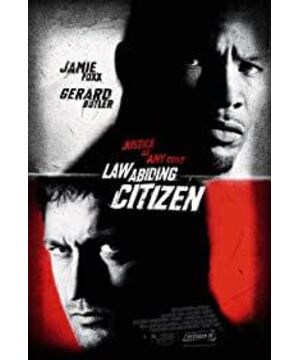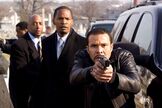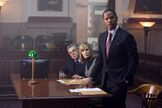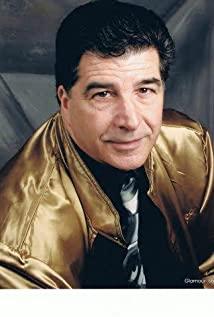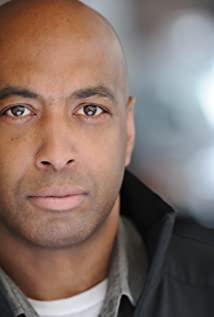Paraphrase: What Nick wants to express is that his conviction rate is very high, and the case that has no chance of winning is not accepted, and there is a bit of ostentation in it.
2. When returning to the office, Bray complained about Sarah’s investigative skills, and Nick vilified Bray’s image on a page of the book, holding the balance in his left hand, and the balance was lower left and upper right, meaning injustice. He holds a golf club in his right hand, and Harvard’s English is written on the golf bag.
Interpretation: Jonas Cantrell (the old man who helped Nick get dressed before the reporter interview) and Nick complained about Bray in the corridor, which means that Bray usually holds the title of high education and looks down on his colleagues from the bottom of his heart. And he is the capable person.
3. In the process of complaining in the corridor, when Nick said that he made a transaction. Jonas was surprised to say that they killed a little girl, and Nick answered him that the system was not perfect to prevaricate. Jonas said that we are also imperfect, you have to win this lawsuit. Nick said I can't take this risk.
Interpretation: Nick has actually been blackened, and in order to achieve a higher conviction rate, he reached an agreement with the prisoner. Later, this wrong decision became the fuse for the hero Clyde's revenge. (I don’t understand one of them. During the conversation between the protagonist Clyde and Nick, when Nick said that he had made a compromise deal, why did he not discuss with the plaintiff’s protagonist before?
4. After Nick talked to the protagonist Clyde, Clyde said that the murderer Darby was the most concerned. Released in five years. The film jumped to ten years later. After the accomplice tragically died on the execution stand, Nick and two detectives were in the car. The audience learned that the murderer Darby had only been in jail for three years.
Interpretation: The accomplice was sentenced after ten years, and the murderer was imprisoned for three years. The ten-year period should be the time to explain how the host Clyde digs the tunnel and prepares for revenge.
5. When Nick and Clyde were talking in the "birdcage", Clyde completely beat Nick in terms of verbal organization. Such a recording of a confession was simply untenable in court. According to Sarah's survey data, he is a mechanic, a small inventor, and an engineer. But there are books on the Codex at home. In court, Clyde defended himself and could be released on bail. After receiving the helpless consent of the female judge, his bail was cancelled due to contempt of the court.
Interpretation: From the perspective of ten years, the hero not only bought real estate, made preparations, dug tunnels, and read a lot of legal books. This shows the hero's determination.
6. The male host killed inmates using the bones of a T-bone steak and entered the solitary confinement room. The studio found that Clyde was connected with the government's contract payments. Jonas used the relationship and later met the spy with Nick. From his mouth, he learned that Clyde was out of control and he was a genius killer. Nick and Clyde are facing each other in the birdcage again. The hero tells the details of Nick going to work at 8 and his wife sending his daughter to school at 8:15.
Interpretation: The male protagonist may be a genius hidden in the city. While living in a project cooperating with the government, his family members were brutally killed by the murderer and broke out. It can be explained here that the DVD sent by the hero to Nick’s family did not arouse any suspicion, because before Nick’s daughter’s performance, Nick had never been there, and they were all DVDs watched at home with his family.
7. Under the ultimatum to the male protagonist asking for his release at 6 in the morning, the apprentice Sarah and his master Nick had such a conversation in the prison temporary studio. Sarah: This case ten years ago, if you try again, what kind of decision will you make?
Nick: This is our job, we have to make a choice.
Sarah: But did you make the right choice?
Nick: We made the right choice, right?
Sarah: I don't know. I am 35 years old, and I have no potential in certain things. This is part of the agreement, don't get me wrong, I like to work for you. I just want to make sure to give up these things, not just for the high conviction rate.
Nick did not answer whether this choice is correct? After a brief silence, Sarah asked Nick if you want coffee. Nick said NO, and the conversation stopped abruptly.
In the parking lot, Jonas asked Nick what we should do with the next thing. Nick's answer was that we would stop him. Then there was an explosion and Sarah lost her life.
Interpretation: This conversation between Sarah and Nick still has no results. Sarah gave me the feeling that I might be leaving this team just for high conviction rates.
8. Before going to the press conference in the cemetery, Jonas said a meaningful sentence, making a decision is not the most difficult, the most difficult is being able to bear it. Jonas was murdered afterwards. And before that, Jonas also used an allusion from the Roman emperor. When on the tour, there was a special servant nearby to remind the emperor that you are just a person, just a person!
Interpretation: Throughout the movie, Jonas, like Nick's mentor, has been telling him how to find the original intention of using the law to achieve justice. Nick is complacent in the face of his high conviction rate.
9. Nick is on the computer and receives the mail. Here is where Sarah's investigative skills took effect 10 years later. Personally, I don’t think that the hero is Chester. Otherwise, when he returns to the confinement room, the hero will not look surprised, including the action of looking for a bomb under the bed. (Note that the recipient is Sarah and the sender is Chester) After comparing the amounts, I found the warehouse belonging to Clyde next to the prison and found a secret passage. In the electronic center, I found a passage from Prussian military strategist von Clausewitz. To achieve victory, all troops must be placed on strength and mobility, that is, the center of gravity of the enemy. Nick found the location of the bomb and took the bomb back to the prison.
Then there was such a conversation in the confinement room, and the male protagonist Clyde was surprised to find that Nick was also there.
Clyde: I never expected someone to visit, I should have cleaned up.
Nick: I have never seen anyone dig a tunnel into a prison. The trick in a single confinement room is very clever.
Clyde: That's how the winner plays. We convince others that their decision is correct. Have you caught my accomplice?
Nick: Yes, we caught it, you are already at the end of the road. You played us, you played us so good.
Clyde: Thank you, I am glad that you finally appreciate my efforts in this matter.
Nick: Did you do this to prove one thing, you succeeded.
Clyde: No, people still don't understand. They are not grateful for what I have said, but they will understand soon.
Nick: A person I care about once said that we cannot withdraw the decisions we have made, we can only influence future decisions.
Clyde: Do you want to save me?
Nick: I'm showing you a way out. A big difference. Stick to the principles you have been preaching. We are all responsible for our actions, including you. Why don't we do the right thing?
Clyde: I am doing the right thing, you just have to look at it this way.
Nick: By murdering these people, all you have done is destroying your daughter's memory and making others fall into the same pain as you.
Clyde: So what is your suggestion? Make another deal? Is this the last chance?
Nick: I won't trade with the murderer anymore. You taught me this.
Clyde: I finally learned it. Good job. Maybe I'm not a bad teacher.
Nick: If you insist on doing this, you may be burdened to make such a decision for the rest of your life.
Clyde: I'm sorry, Nick. i'm sorry,nick.
Nick: Me too. me too.
After that, the tunnel was closed by police detectives, and the door was closed by Nick, but he was still looking for the sound of the phone, struggling with the locked briefcase. It is a failure. Finally, the male protagonist smiled helplessly and was surrounded by the fire.
Interpretation: Actually, seeing the end of the film, I have two opinions.
One is Nick's whitewashing and retrieving his original intention. Because he said that I will never make a deal with the murderer again. At the same time he also ascended to the position of prosecutor and re-advocated justice. What disappoints me is that at the end of this whitewashing, he still owes the protagonist an excuse, because his decision led to the murderer's impunity.
One is that Nick is still the same. Put the bomb under the bed, so he said that I will never make a deal with the murderer again. The murderer here refers specifically to Clyde, who is confident of arresting the hero or destroying the hero with this bomb. So he doesn't have to deal with the murderer.
Tucao: The male protagonist designed a very sophisticated robot, but the bomb was taken by Nick to run around. How can I say that if the bomb is moved, it will explode.
In the end, the director arranged for Nick and his wife to watch her daughter's live performance, and I was also dumbfounded.
Looking at this movie as a whole, the process of revenge is wonderful, and the end is beautiful.
Unfortunately, McRae, the great western cowboy, said: Justice does not serve itself. 23333333
View more about Law Abiding Citizen reviews


